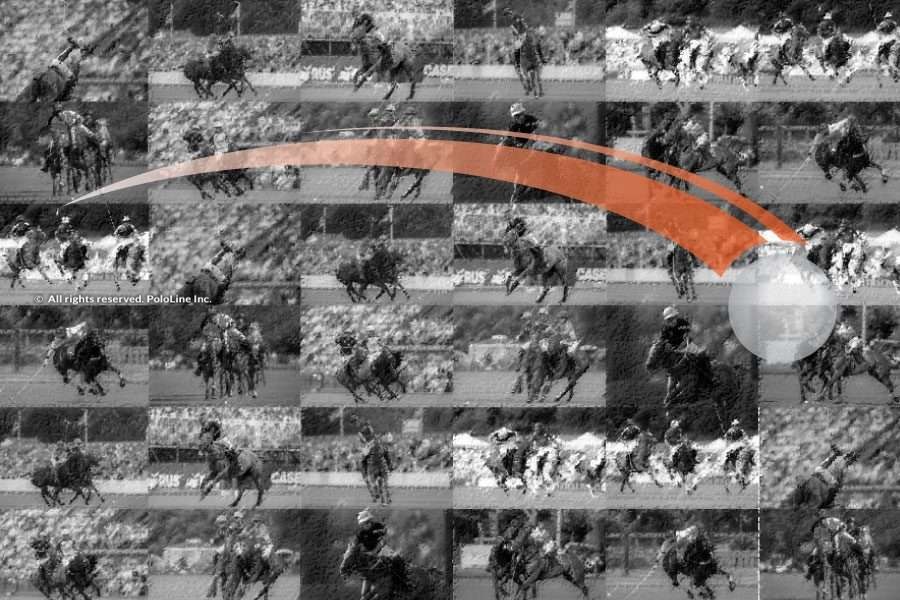The H.H President of UAE Polo Cup which was underway in Abu Dhabi, UAE, was perhaps the last tournament that seemed unaffected by the global pandemic, even though it was hard to imagine that polo in the region would go unscathed. The confirmation that the competition, which was celebrating its twentieth edition, would be cancelled came on Thursday, and put a worldwide stop to polo as a result of growing health concerns which by now are of public knowledge.
It is worth stating that the tournament had already been shut off to the public, meaning that only players, their teams, and staff were allowed near the ground. On top of those restrictions, as of the first day of action (March 11), everyone who entered the club was submitted to intense health checks. The date is important, because at that time other sporting activities in the country were still welcoming the public.
On Monday, the Dubai Sports Council announced the suspension of all sporting events in the emirate, with no possibility of even hosting games and closing them off to the public, compared to the regulations placed in other clubs around the world.
Prior to this, on Friday, the Argentine Association of Polo (AAP) announced the suspension of all official tournaments until the end of March. Just a few hours before this announcement, Thai Polo & Equestrian Club concluded its season in Thailand. This Friday, March 20, the AAP cancelled the entire autumn season indefinitely.
Last weekend, firm measures were put in place in the United States. The USPA took the first step, limiting entry to the club to players and staff during the quarterfinals of the USPA Gold Cup on Saturday. On Monday, the World Polo League took the decision to halt polo for fourteen days. On Tuesday, the USPA followed suit and announced that it was also suspending all activity for a fortnight. With the semifinals of the USPA Gold Cup and the Women’s US Open pending, and the US Open around the corner, one imagines that the decision was not as drastic considering the importance of the aforementioned tournaments. But with ever more radical measures to prevent the spread of the virus being put in place, the outlook for the season seems pretty bleak.
On the other hand, and with no wish to sound insensitive, the positive message from the Hurlingham Polo Association (HPA) on Monday was a light of hope among so much dark and deflating news that is circulating the the polo community and the world as a whole. While this situation is unprecedented and its effects are being felt globally, it is still important to take time to analyse the negative impact this will have on the sport and the economic chain that relies on polo.
The intention of the HPA, and the wish of clubs around England, to keep polo open and to maintain the season fixture—government permitting—gave the impression that there was a light at the end of the tunnel. But this Thursday, the HPA were forced to go back on that statement, announcing that there will be no activity until May 1. The end of March is now approaching, the time when the European season—which normally kicks off towards the end of April and runs through to mid-September—would be fine tuning logistics and getting ready for action.
But the only thing that prevails is uncertainty and the dire economic impact this situation may cause. The predicament for polo is one that even the most pessimistic among us would not have dreamt up even just ten days ago.
During this time the media must be particularly responsible, and collective health must be put before individual well-being. But it is also important to take measures to ensure the minimum negative impact possible. Polo is divided into seasons—some shorter, others longer—and the suspension of play will mean that many will not be able to travel back to their countries, a great deal may be stuck miles away from home, or in worse case scenarios, some may not be able to pay their basic monthly bills.
While a number of readers may argue that the responsibility of covering the economic needs of individuals falls with the government, there are many potential circumstances that cannot be taken lightly. It is undeniable that we have to stay indoors until this situation improves, but we cannot forget those who rely on a daily income to pay their bills and taxes. Part of our role as communicators in this unprecedented situation is to bring to light topics that are at times hidden or left to one side. Let’s stay indoors, but let’s think about how we can help the polo industry so that our community doesn’t suffer more than it already has.
